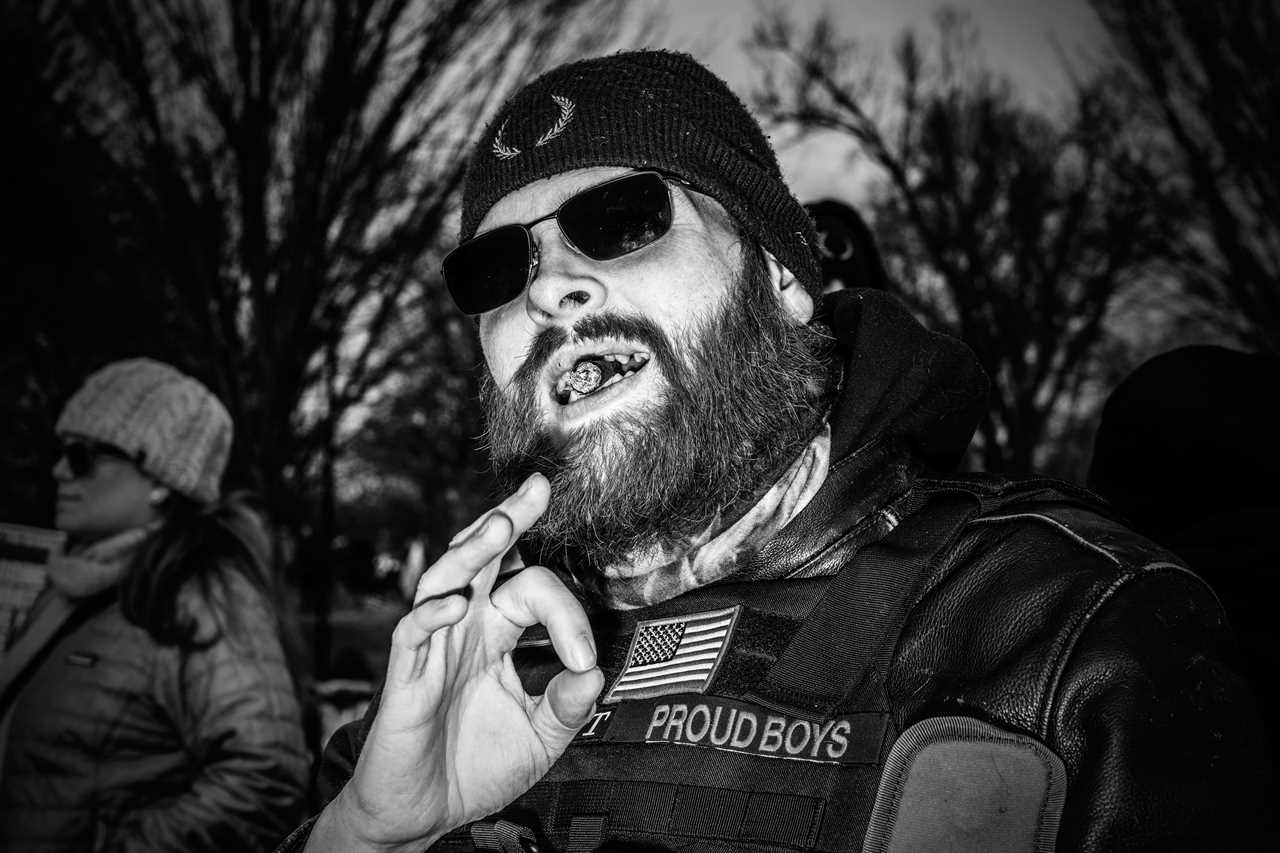
Judged by most conventional metrics of political success, the Proud Boys — the far-right street gang whose yellow-and-black-clad members became fixtures of MAGA rallies during the Trump years — have been a colossal failure. Following the Jan. 6 insurrection at the Capitol, many of the group’s leaders are either in jail or facing federal charges for seditious conspiracy. Sporadic attempts by rank-and-file members to run for public office have mostly come to naught. At least one major U.S. ally — Canada — has officially designated the group as a terrorist entity, along with Al Qaeda and Boko Haram.
But to evaluate the Proud Boys using these more traditional standards is to miss the subtler — yet more consequential — ways that the group has transformed the tenor and tone of American politics, argues Huffington Post senior editor and veteran extremism reporter Andy Campbell in his new book, “We are Proud Boys: How a Right-Wing Street Gang Ushered in a New Era of American Extremism. Campbell, who has covered the Proud Boys since their formation in the early Trump years, instead judges the Proud Boys by the standards that they use to judge themselves — namely, their ability to convince the mainstream of the Republican Party that violence is, sometimes, the answer.
By that metric, Campbell writes, the Proud Boys have been “the most successful extremist group in the digital age.”
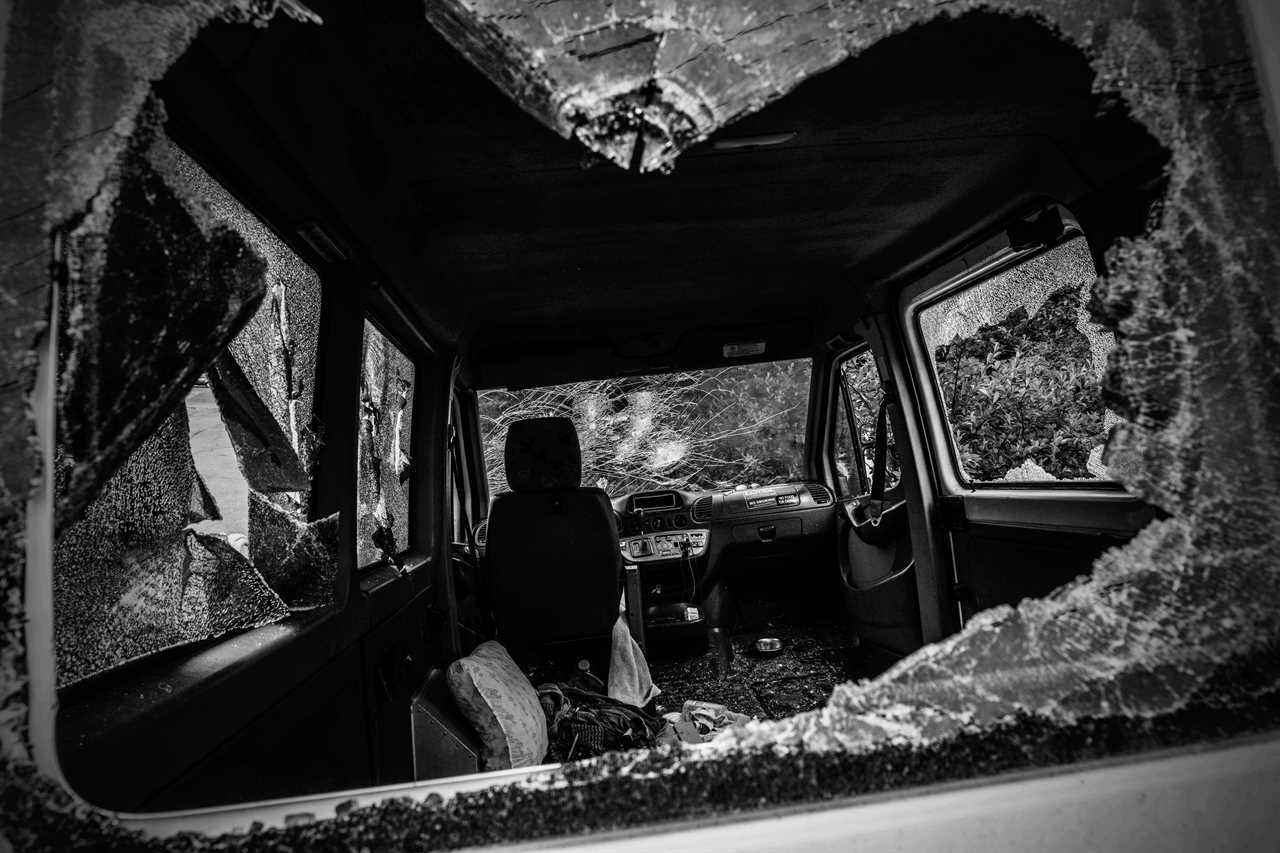
The success of the Proud Boys’ effort to normalize political violence is perhaps most evident in the Republican National Committee’s decision to classify the violence of Jan. 6 as “legitimate political discourse.” But it is also apparent in the near-constant threat of violent clashes that hangs over practically every political protest or rally that draws national media attention.
“Can you imagine going to any political protest or event that happens to be on Fox News that evening and not seeing weapons and people fighting?” Campbell asked when we spoke by phone last week. “This is a totally normal thing [now], where it wasn’t in 2016.”
Although it may seem like the legal fallout from Jan. 6 has put the group on its heels, there is a danger in assuming that action by law enforcement will be enough to suppress the Proud Boys’ violence in the long run. Unlike a more traditional political party or activist group, Campbell explained, the Proud Boys don’t necessarily view an indictment or a federal conspiracy charge as a rebuke to their political project. On the contrary, they see it as a reason to fight harder.
“A number of people wrote them off once after Jan. 6, saying, ‘Oh, the Proud Boys are imploding, or they’re going to dissolve after this,’” Campbell told me. “But sure enough, they’re still in action.”
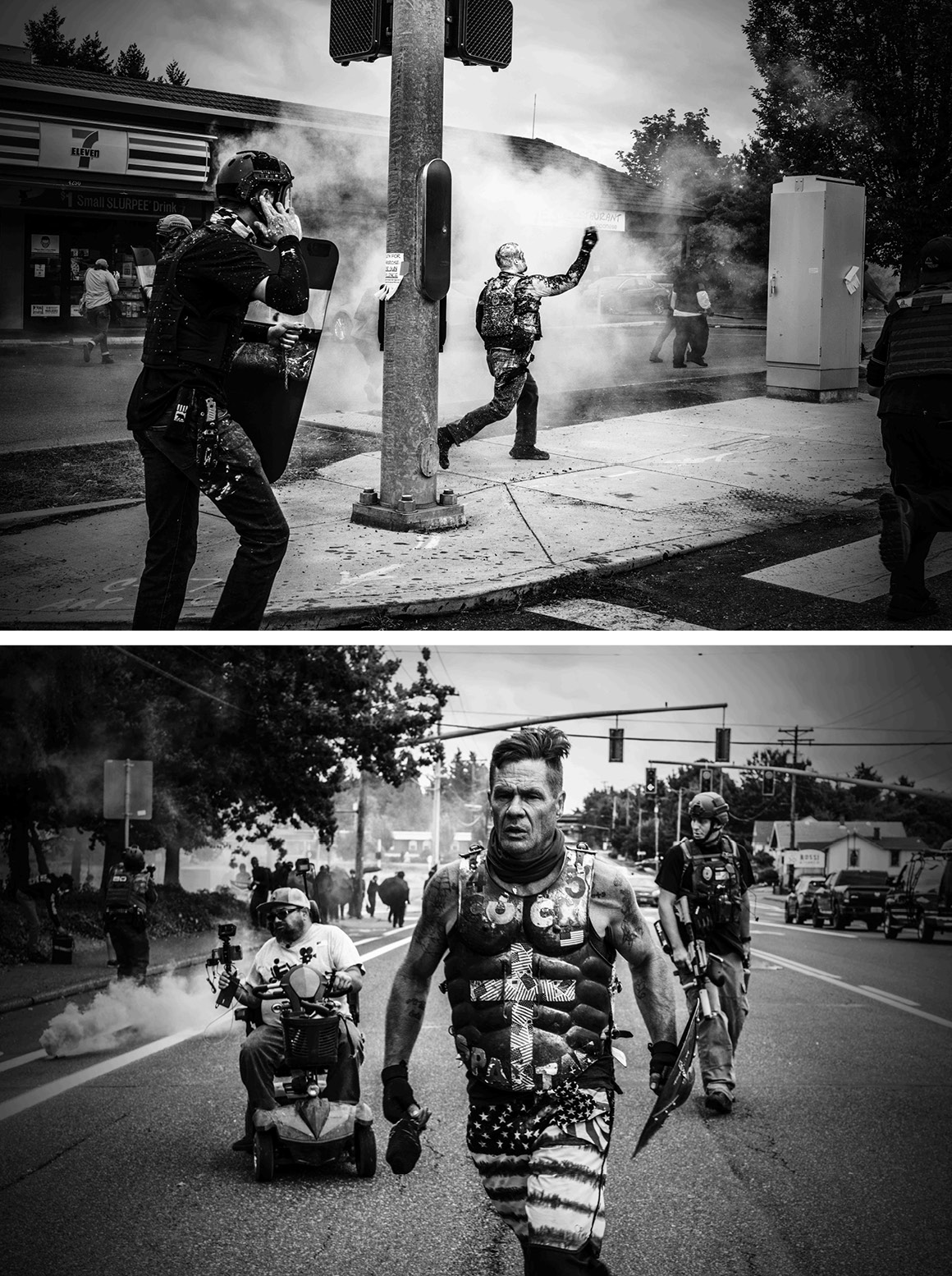
This transcript has been edited for length and clarity.
Ian Ward: Let’s start at the end. In the last chapter of the book, you write, “There’s absolutely no such thing as lone wolf extremism.” Why is that observation important for understanding the Proud Boys?
Andy Campbell: When it comes to mass shootings or any of these incidents of violence that appear to come from one person who might drop a manifesto online, they are always supported by a network and driven by the political temperature in this country — and so it goes with the Proud Boys. I often get asked what threat they pose if their numbers only range in the thousands, but it is the support network around them and their ability to coalition-build online that makes them threatening. We’ve never, ever seen one of these guys who is called a “lone wolf” be truly, truly alone.
Ward: The story of the Proud Boys’ political development is sometimes told as the story of a rowdy and casually racist social club that stumbled its way into mainstream Republican politics. But your reporting shows that even in their early days, the Proud Boys were in touch with the darker fringes of the Republican Party. What were the early signs that they envisioned a place for themselves within the GOP mainstream?
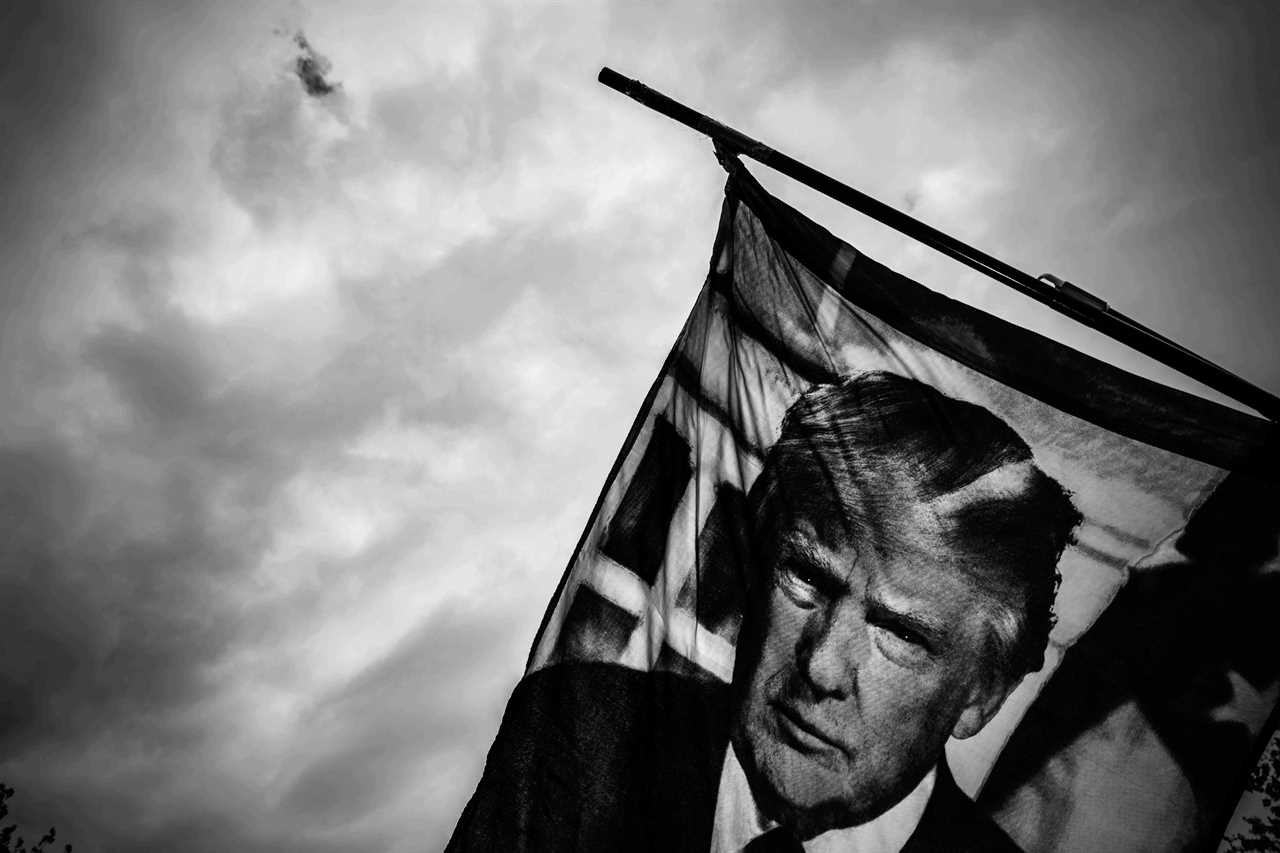
Campbell: Certainly from the beginning, [Proud Boys founder] Gavin McInnes had tailored the group’s violence and its events around Trump and the GOP under Trump. He said, “We are out there doing what the crusty Republicans won’t do, which is putting the violence out there that Republicans are asking for.” But it wasn’t until 2018 and the attack at the [Metropolitan Republican Club] in Manhattan that you could really see that these guys had a true connection to the GOP that was more than just them latching onto the right wing. It was in 2018 that we started seeing them being invited to GOP events and showing up in pictures alongside some of the GOP elite. And what we realized later was that [McInnes] and [former Proud Boys chairman] Enrique Tarrio had come in and said, “The way that we are going to stay legitimate after Unite the Right — when a whole bunch of extremist groups dissolved — is actually to get involved in politics.”
Ward: I thought it was telling that during the very early meetings of the Proud Boys back in 2017, McInnes would rail lines of cocaine and recite passages from former GOP presidential candidate Pat Buchanan’s “Death of the West.”
Campbell: There was always this political background and ideological background. A lot of the early stuff was driven primarily by Gavin McInnes’s larger-than-life ego, but [Enrique] Tarrio came in — and he told me this between stints in jail after Jan. 6, when I talked to him on the phone — that he wanted the [next] iteration of the Proud Boys to at least temporarily hold less Proud Boy-centric events and to get more involved politically.
Ward: Who were the key figures within the Republican mainstream who helped welcome the Proud Boys into the fold during the Trump years?
Campbell: I spoke to Roger Stone — and, I mean, when you talk to someone like Roger Stone, it’s unclear whether he even knows who he’s talking to — but he made no secret of the fact that he advised the Proud Boys politically and through their crime. That’s because he’s really good friends with Enrique Tarrio, and he sees a lot in [Tarrio] politically. So Roger Stone was a major conduit for them.
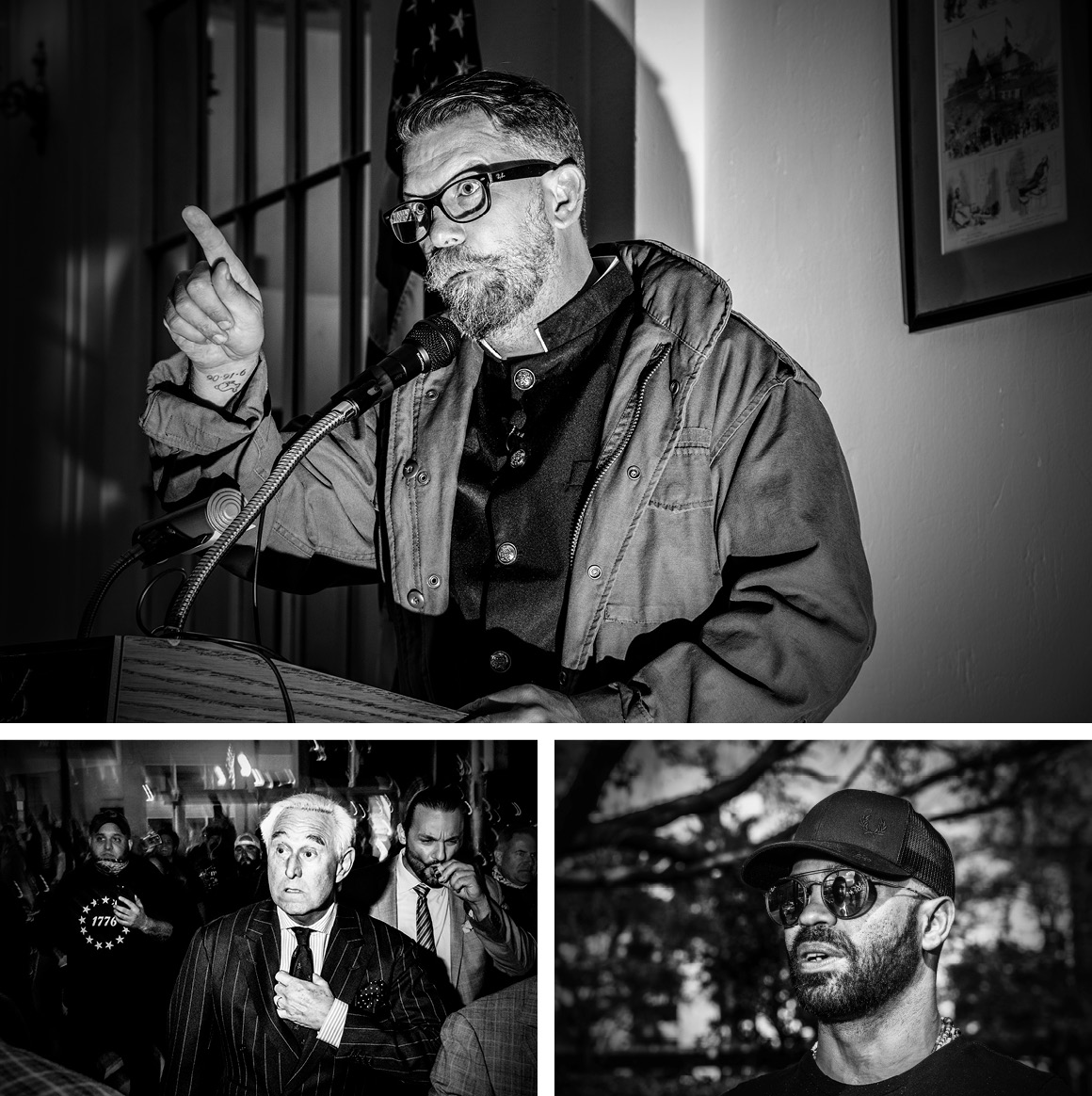
But I also think that the media personalities and the other lower-level politicians who used them as security gave them a sort of air of legitimacy in the early days. They were doing security for Matt Gaetz’ events and for Ann Coulter, who later wrote a blog called “Thank God for the proud boys” after Jan. 6. I think that speaks to Proud Boys’ success in positioning themselves as a justified and necessary thing for the political right. While Fox News is screaming about the scourge of antifa and BLM and how they’re coming over the horizon to attack you, they are also positioning the Proud Boys as a necessary defense force against that.
Ward: Researchers and journalists — myself included — have struggled to pin down the actual substance of the Proud Boys’ ideological beliefs, beyond a vague commitment to “Western supremacy” and a belief in the legitimacy of political violence. That might seem like a political deficiency, but you argue that their ideological flexibility has actually been an asset. Why?
Campbell: Gavin McInnes’s whole thing was: We are politically fluid. We’re going to fight the GOP’s grievances out in the street, and that as long as you’re anti-immigrant, as long as you’re a Trump supporter and as long as you follow the basic tenets of the Proud Boys — which is to commit significant acts of violence for the cause — you can be a member of us. And that’s why you have people of color and people from all around the world in their ranks. While they might be standing alongside Nazis or other bigots, they’re gathering under the banner of GOP grievance. This summer, they’re showing up at abortion rallies, at children’s hospitals and anywhere else trans rights are being discussed, and at drag queen story hours.
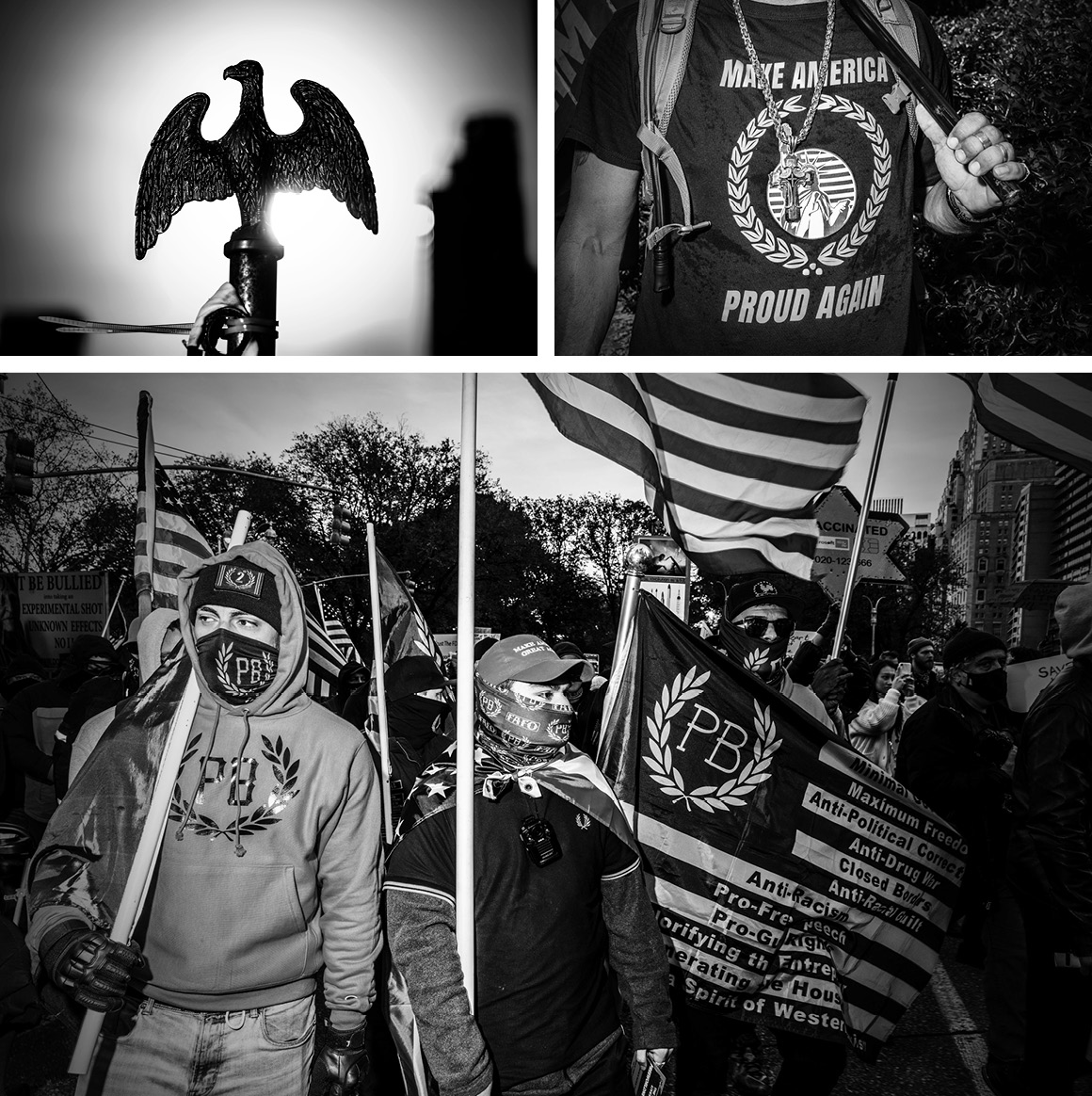
Ward: There’s a pretty clear trajectory from the 2018 brawl at the Metropolitan Republican Club to Trump’s “stand back and stand by” comment during the presidential debate in September 2020 to, ultimately, the Jan. 6 insurrection. Did anything really surprise you about their role on Jan. 6?
Campbell: I was turning in the final chapters of the book when the original conspiracy charges came down against them, which were not surprising. The “1776 Returns” document showed that the Proud Boys didn’t just have an outsize role in Jan. 6, but that they may have had a role in planning it, too. Leading up to January 6, the Proud Boys were prepping for civil war, and they were getting super excited for their last stand for Trump.
But I was absolutely surprised that the [other] architects of Jan. 6 would put any sort of trust in the Proud Boys to pull this thing off, because any big event that they’ve been involved in over the years has led to mass arrests. The Proud Boys are terrible with their information security, and they’re constantly being watched by the feds and by journalists. So it was absolutely surprising to me, when that “1776 Returns” document came down, that they had such a big role in [planning] it.
And then they’ve continued to surprise me with their resiliency. A number of people wrote them off after Jan. 6, saying, “Oh, the Proud Boys are imploding, or they’re gonna dissolve after this,” and sure enough, they’re still in action.
Ward: Early in the book, you cite McInnes’ claim that “Fighting solves everything,” and you argue that the GOP more or less tacitly endorsed that point of view when the Republican National Committee classified the violence of Jan. 6 as “legitimate political discourse.” How much credit — or blame, depending on your point of view — do the Proud Boys deserve for the GOP’s decision to endorse some forms of political violence?
Campbell: I think they have [played] a huge role. I mean, they were showing up at events big and small at the behest of Trump and the GOP grievance machine for years and fighting it out in the street. Over time, the goalposts have been moved to the degree that political violence, as a justified response to the things that the [GOP] is mad about, is totally normal now.
What’s scary about the Proud Boys is that the playbook that they’ve helped create under Trump is such that everyday Americans think that they can go out [into the streets] and fight for the things that they’re mad about. You’ve got regular people joining extremists at abortion clinics and at Boston Children’s Hospital and at drag queen story hours. They’re threatening and intimidating people, and they’re looking at the Proud Boys, whose leaders have seen very few consequences until Jan. 6. Certainly, [McInnes] has never seen any real legal consequences for fomenting all of this.
[Look at] Libs of TikTok. All these right-wing loudmouths are looking at the Proud Boys and saying, Hey, as long as I couch everything that I’m saying in political speech, I can say whatever I want — people can go out and murder, and I’m never going to see any consequences for it. And at least legally, that’s largely true. So, while you can’t say that the Proud Boys are the arbiters of all political violence, you can certainly draw a line between this sort of stuff and these small events [where] they’ve been fighting and fighting and fighting over the years. And it’s not just Proud Boys events anymore where violence happens. Every facet of American life is overrun by political violence now, and I think the Proud Boys are a big part of that.
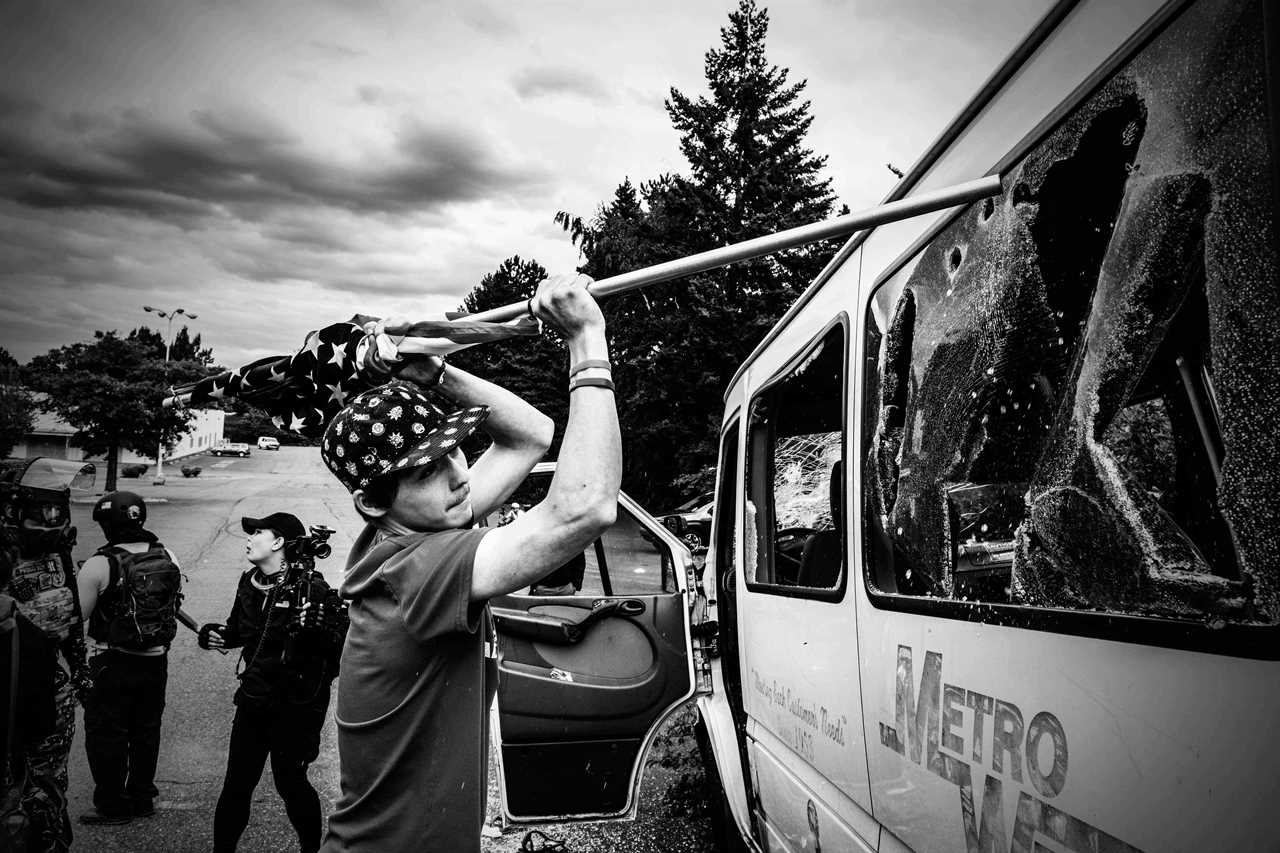
Ward: They’ve pretty dramatically transformed what you can expect to see at some political rallies or demonstrations, for instance.
Campbell: Exactly. Going into the next two election cycles, it is totally normal to see guys in football pads and military camo with AR-15s or batons. I mean, this is a totally normal thing [now], where it wasn’t in 2016. It’s scary knowing that this is the baseline that we have to deal with. Can you imagine going to any political protest or event that happens to be on Fox News that evening and not seeing weapons and people fighting?
Ward: What sort of legal tools do federal and state authorities need to target domestic extremism at its root, as opposed to just dealing with its consequences?
Campbell: I think the Jan. 6 committee is doing well, and I think that the DOJ is doing well with all of the [Jan. 6] cases. But we’re still 10 steps behind, in the sense that both law enforcement and politicians are just now learning about and exposing the crisis when [they] should be at the point of responding to it. As we’ve seen with the way law enforcement deals with anti-fascists and with BLM activists in the street, they have tools to take organized groups and prosecute them, whether it’s racketeering charges or something else. Certainly, they are able to do it, and we just haven’t seen them do it on the scale that has really made a dent.
I mean, the fact that an outgoing Department of Homeland Security official told the New York Times","link":{"target":"NEW","attributes":[],"url":"http://nytimes.com/2021/03/14/us/proud-boys-law-enforcement.html","_id":"00000183-6f49-d258-a1a3-ef79ff390012","_type":"33ac701a-72c1-316a-a3a5-13918cf384df"},"_id":"00000183-6f49-d258-a1a3-ef79ff390013","_type":"02ec1f82-5e56-3b8c-af6e-6fc7c8772266"}">New York Times, even after Jan. 6, that they thought that the Proud Boys were just a drinking club that got out of hand from time to time — that shows you how far behind we are in responding to this threat. Really, we’ve been unable to respond to domestic extremism for decades. This was a crisis before the Proud Boys and is only gaining steam with them. So, my answer is that I don’t really have one, but I think we should move from recognizing mode to response mode.
----------------------------------------
By: Ian Ward
Title: ‘The Most Successful Extremist Group in the Digital Age’
Sourced From: www.politico.com/news/magazine/2022/09/23/proud-boys-extremism-book-00057703
Published Date: Fri, 23 Sep 2022 07:38:47 EST
Did you miss our previous article...
https://consumernewsnetwork.com/politics-us/the-cheney-2024-conundrum






